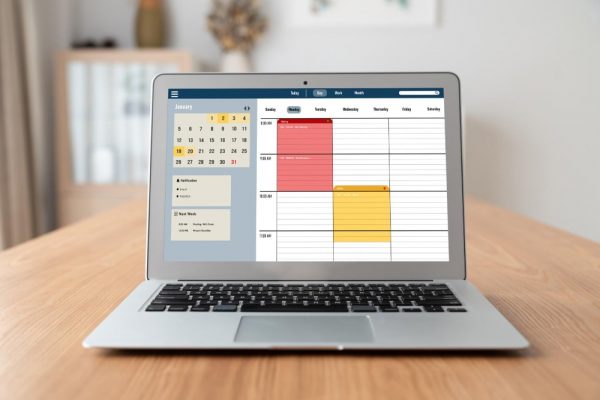
Guide to Becoming a Successful Corporate Event Planner
An event planner for companies plays a pivotal role in organizing meetings and events that help businesses achieve their goals, whether it's improving team morale, networking, or promoting new products. But how do you become a corporate event planner? This post will explore the journey, from understanding what a business event planner does to how you can kickstart your career in the industry.
I. What is a Corporate Event?
Corporate events range from internal company meetings to large-scale conferences that include external stakeholders. These events are designed to meet specific business objectives such as networking, team-building, brand promotion, or education. Further, common examples of corporate events include:
- Meetings
- Workshops
- Seminars
- Conferences
- Trade shows
- Team-building activities
- Product launches
- Executive retreats
- Office parties
The purpose of corporate events is to engage attendees, whether they’re employees, clients, or partners, in a way that strengthens relationships, promotes the company, and supports business growth.
II. What Does a Corporate Event Planner Do?
As a company event planner, your primary role is to ensure that every meeting or event you organize runs smoothly and achieves its objectives. Responsibilities may vary depending on the scale of the event, but generally include:
- Venue selection: Securing the perfect location for your corporate event, whether it's a conference hall, office space, or outdoor venue.
- Budget management: Keeping track of event-related expenses, ensuring the event remains within the company’s allocated budget.
- Vendor coordination: Working with caterers, AV teams, decorators, and other vendors to ensure all event logistics are in place.
- Attendee management: Handling RSVPs, guest lists, and seating arrangements to provide a smooth attendee experience.
- Marketing and promotion: Helping to promote the event to company employees, clients, or external stakeholders through email, social media, and other channels.
- On-site management: Ensuring the event runs smoothly on the day, resolving any issues that arise in real-time.
- Event ROI analysis: Evaluating the success and financial return of an event by comparing the costs invested with the measurable outcomes, such as attendee engagement, brand awareness, and revenue generation.

III. Why Event Planners for Companies Are Essential
Businesses often hire corporate event planners to help them plan complex, large-scale events, allowing them to focus on their main business operations while trusting that the event logistics will be handled professionally. Hence, event planners for corporations offer creative solutions, save time, and ensure that events align with business goals.
Here’s why an event planner for companies is important:
- Time Efficiency: A corporate event organizer handles the details, allowing your team to stay focused on business objectives rather than being bogged down by event logistics.
- Expertise and Creativity: A corporate events planner knows how to design and execute an event or party that aligns with the company’s goals and brand identity.
- Risk Management: A professional event planner can foresee potential issues and provide solutions, ensuring smooth execution.
IV. How Much Do Corporate Event Planners Make?
The salary of an event planner for companies varies based on location, experience, and the size of the events they manage. According to ZipRecruiter, on average, corporate events planners earn between US$ 50,000 to US$ 85,000 per year in the United States, with experienced professionals earning even more, particularly in large corporations or high-demand industries.
Independent organizers typically charge based on the size and complexity of the event. Hourly rates for corporate event planners generally range from US$ 50 to US$ 150, depending on their experience, location, and event demands. Some business event planners also charge flat fees or work on a percentage of the event budget. Smaller events may cost between $1,000 and $2,500, while larger events command higher fees.

V. How to Become a Corporate Event Planner?
Becoming a successful business event planner requires a combination of education, experience, and networking. Below are the key steps to start your journey:
1. Get an Education in Event Planning or Related Fields
While not always required, having a degree in a relevant field can give you a competitive edge. Further, degrees in hospitality, marketing, communications, business administration, or event management are highly beneficial. Since, formal education helps you understand the theory and best practices behind successful event planning.
Additionally, consider taking corporate event planning courses to learn the intricacies of organizing corporate events and meetings. These courses cover topics like vendor management, budget planning, contracts, and event marketing.
2. Gain Experience Through Internships and Entry-Level Roles
Hands-on experience is critical for a career in corporate event planning. Start by gaining experience through internships with an event organizer company or a business that regularly hosts corporate events. Entry-level roles, such as an event coordinator or assistant, provide invaluable insight into the industry and can help build a portfolio of successful events.
Experience will also teach you the importance of time management, problem-solving, and communication skills—core competencies of any successful meetings and events planner for corporations.
3. Build a Strong Portfolio
A strong portfolio showcasing your experience with various types of events is essential for landing clients or securing a job as an event planner for companies. Include details such as event objectives, the role you played, and the outcomes achieved. Be sure to gather testimonials or feedback from past clients to demonstrate your credibility.
Your portfolio can also be digital—create a website or LinkedIn profile where potential clients or employers can easily view your work and experience.
4. Get Certified in Event Planning
Obtaining industry-recognized certifications can greatly enhance your credibility as an event planner for companies. Consider earning certifications such as:
- Certified Meeting Professional (CMP)
- Certified Special Events Professional (CSEP)
- Certified Event Planner (CEP)
Certifications not only boost your professional standing but also help you stay up-to-date with industry standards and best practices.

5. Network with Industry Professionals
Networking is an essential aspect of becoming a successful event planner for companies. Attend networking events, such as industry conferences, roundtable discussions, and charity galas. Also, join event planning associations, and connect with vendors, venues, and fellow business events organizers. Lastly, networking can open doors to new clients, job opportunities, and partnerships with corporate events planners.
Additionally, maintain relationships with clients and vendors you’ve worked with in the past. Referrals and repeat business are invaluable in the event planning industry.
6. Stay Updated with Industry Trends
The event planning industry is always evolving, with new trends, tools, and technologies shaping the way events are organized. Additionally, staying updated with the latest event trends—such as virtual and hybrid events, eco-friendly events, and immersive technologies—will give you a competitive edge and make you more attractive to potential clients.
7. Master Event Management Technology
To become a successful corporate event planner, it's also essential to master event planning software, CRM systems, and marketing tools. These technologies streamline your workflow, increase efficiency, and allow you to manage multiple aspects of your event seamlessly.
One robust tool available to event planners for companies of all sizes is Timely event management software. Timely offers a comprehensive suite of features designed to help planners save time, boost productivity, and enhance the attendee experience. Furthermore, with Timely, you can automate event promotion, manage registrations, process payments, and handle attendee communication all from a single platform.
Key features of Timely include:
- Customizable Event Pages: Create engaging event landing pages that reflect your brand and provide all necessary event details.
- Automated Registration & Ticketing: Streamline the event registration process by automating ticket sales, managing RSVPs, and offering multiple payment options.
- Integrated Marketing Tools: Promote your events with built-in social media and email marketing features, making it easier to reach a wider audience.
- Calendar and Scheduling Features: Organize and display all upcoming events in an interactive, user-friendly events calendar that allows for easy navigation and planning.
By using Timely and similar event planning tools, you'll be able to simplify your processes, automate manual tasks, and ultimately deliver a better experience for both your company and attendees.

VI. Conclusion: Key Steps to Achieve Success as a Corporate Event Planner
Becoming a successful event planner for companies involves a combination of education, experience, networking, and dedication. By following the steps outlined above, you can build a rewarding career that allows you to create memorable and impactful events for businesses. Whether you're just starting or looking to grow your event planning business, investing in your skills and staying connected within the industry will help you thrive as a corporate event planner.
With platforms like Timely, recognized with awards like the 2023 Front Runners Report by Software Advice, you gain access to event management tools that seamlessly integrate into your strategy.
Learn more about Timely’s application for event planning and discover how to transform your event management today.
Table of Contents

Event Management Updates
If you want to know more Timely company and product update news, please visit our Event Management Blog. There is always something new happening at Timely, so we do our best to keep our clients on the loop!
You might also like







